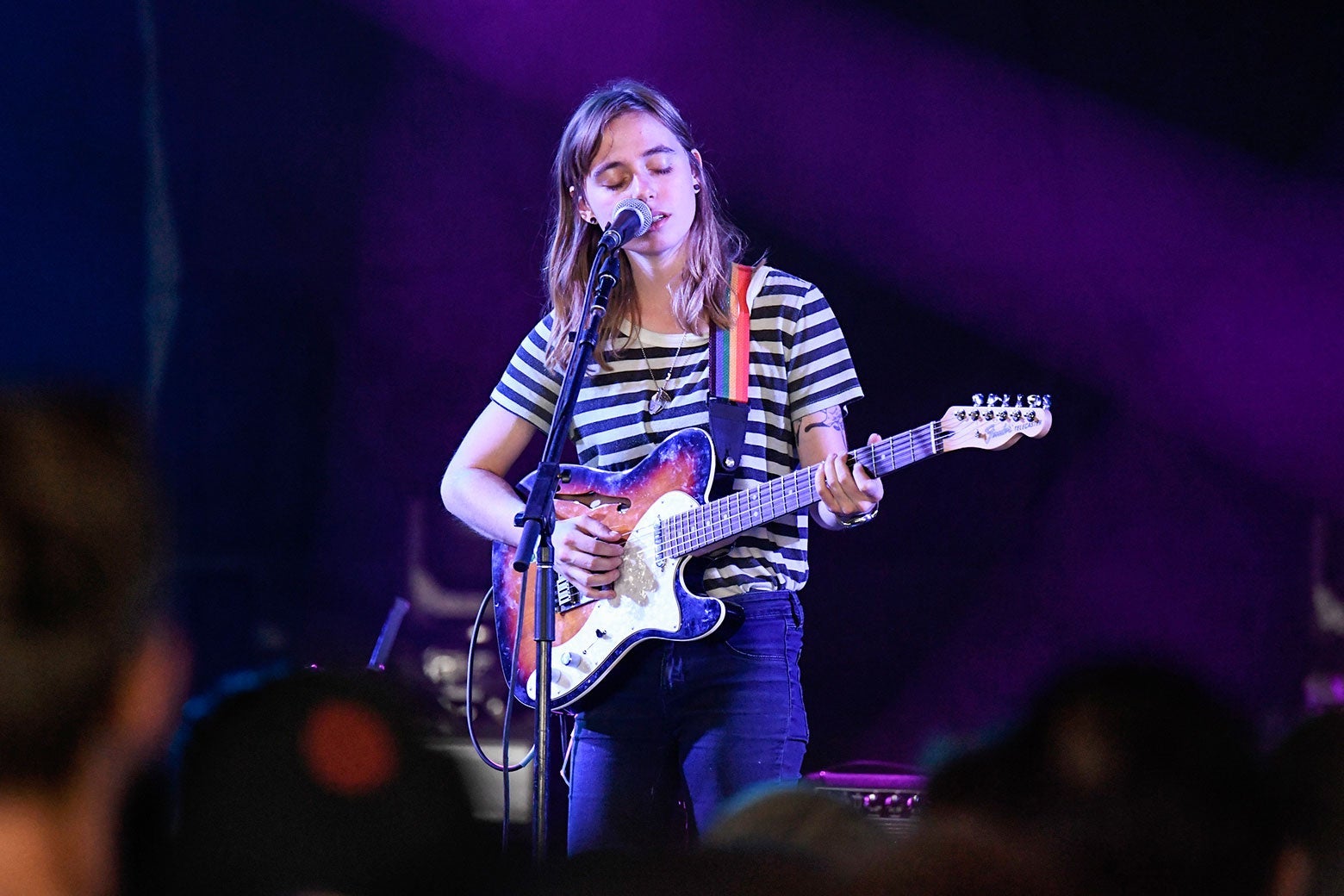On this week’s episode of Working, Isaac Butler spoke with singer-songwriter Julien Baker about her new album Little Oblivions, which Slate’s music critic called one of the best breakup records of 2021. They discussed what goes into her creative process, how she gets inspiration for lyrics, and the ways her new album differs from her previous ones. This partial transcript has been edited and condensed for clarity.
Isaac Butler: Was it hard for you earlier in your career to be like, Actually this song isn’t working, I need to move on to another one? And then maybe come back, or maybe never pick it up again?
Julien Baker: It’s something that I think you learn with practice. There’s this idea that people are born innately good at songwriting, or innately not good at songwriting. Either their songs are corny and they don’t have a poetic impulse, or they’re good and they do. But I think it’s like panning for gold, and trying to distill the salient pieces from a whole lot of material that you’ve gathered. When I was a kid playing in my band the Star Killers, we would write a song, and then that was just the song. It was the way it was after we had put it all together in one practice. Then that song was part of our set. Whether it was good or not, or whether it was stylistically or thematically consistent with the rest of the music that we made. We were just making anything, making music that sounded good to us.
I think it’s because when you’re first learning to create and you realize that you’re able to construct something—I don’t like the word “original” because it’s loaded and not quite accurate, but something original of yourself—for a long time it feels very precious to you. And you don’t want to abandon it. I had difficulty letting myself take songs apart and put them back together because I felt like that was somehow compromising the integrity of the song as it was written. Because it was this hodgepodge of ideas. But that’s where the craft comes in, right?
How do you relate disparate parts of songs and lyrics to each other? How do you make them interact in a way that feels natural, and still feels like storytelling, and still is animating the listener? But I would be lying if I said I thought about it in that critical of a way in the moment, writing a song.
There’s a difference between when you’re reflecting on it and when you’re actually making those decisions.
Yeah, totally. This entire record [Little Oblivions] was just myself and Calvin Lauber, who produced the record with me and engineered it. It was just me and him sometimes staring at a Pro Tools session and being like, It’s not right. I don’t know. I don’t know what it needs. At that point, you start doing things that seem counterintuitive. It’s just the process of making mistakes. Finding out that things sound bad is part of exploring songwriting.
Do you remember at what point with “Favor” the lyrics became known to you, or you started working on them? Does that come early in the process? Are you figuring out a melody and then figuring out the words that might fit it?
This was one where I had a very vivid experience about riding with one of my friends in their truck down to visit our families in Jackson, Tennessee. When I got back home, I had a lot to say and to process about it. I sat down and tried to let all of my thoughts tumble out of my mouth. Of course, there was more there than ended up being in the song.
Lyric writing is so much about compression, right? You have all these things, and you have to compress it so that every word is doing so much work.
Completely. It’s difficult too. To me, it feels a lot like I’m always rearranging fridge magnet words in my brain.
To listen to the full interview with Julien Baker subscribe to Working on Apple Podcasts or Spotify, or listen below.
